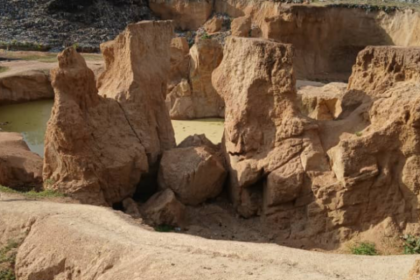As the global race to combat climate change intensifies, Africa is emerging as a key player, standing at a crucial intersection of environmental responsibility and economic development. While countries in the United States and Europe advance their ambitious emission reduction goals, African nations are tasked with addressing unique challenges that make their decarbonization journeys complex and multifaceted. At the heart of this effort is the necessity for accurate carbon accounting, a tool that could play a transformative role in guiding Africa towards sustainable growth while contributing meaningfully to global climate targets.
Carbon accounting, which refers to the process of measuring, reporting, and verifying greenhouse gas (GHG) emissions, has become increasingly recognized as a cornerstone in the fight against climate change. For African nations, where industries like energy, agriculture, and transportation drive economic growth and contribute significantly to emissions, this method is crucial. It allows governments and businesses to understand their emissions profiles, set realistic reduction targets, and monitor progress over time.
However, unlike their counterparts in the Global North, African countries face distinct obstacles in implementing robust carbon accounting systems. The availability of technology, regulatory frameworks, and financial resources, which are readily accessible in developed nations, remain limited across much of the continent. Despite these challenges, Africa’s potential for effective carbon accounting—and the wider decarbonization strategies that stem from it—presents both a necessity and an opportunity.
Nigeria’s Carbon Accounting Challenge
Nigeria, the most populous nation in Africa and a major oil and gas producer, finds itself in the spotlight when discussing carbon accounting and decarbonization. The country’s oil and gas sector, while pivotal to its economy, is also a significant source of greenhouse gas emissions. Accurate carbon accounting in this industry is therefore vital to understanding the environmental impact and establishing meaningful emission reduction targets.
Without accurate data, Nigeria risks both underestimating its contributions to global emissions and missing out on critical opportunities for reductions. Furthermore, inaccurate or incomplete carbon accounting can have adverse effects on foreign investment and international partnerships, as transparency and accountability in climate reporting increasingly factor into decision-making.
But the barriers to achieving accurate carbon accounting in Nigeria—and across Africa—are formidable. Many African nations lack the necessary infrastructure, technical expertise, and data collection systems to ensure precise measurements. This gap in capacity can lead to flawed reporting, which, in turn, undermines efforts to meet international climate commitments and opens the door to potential accusations of greenwashing—presenting a falsely positive picture of environmental performance.
The Strategic Role of Carbon Accounting
Despite the challenges, the potential for carbon accounting to shape Africa’s decarbonization pathway is significant. If African nations can integrate accurate carbon accounting practices into their national development strategies, they can not only contribute to global climate goals but also position themselves as leaders in sustainable development. This is especially critical in high-emission sectors like energy, agriculture, and transportation, which are key drivers of the continent’s economic growth.
South Africa offers a promising example of how carbon accounting can drive decarbonization efforts. In 2019, the country implemented a carbon tax, supported by a robust carbon accounting framework that requires companies to measure and report their emissions. This approach has incentivized businesses to reduce their carbon footprints, adopt cleaner technologies, and contribute to the country’s overall emission reduction targets. South Africa’s experience underscores the importance of a clear, enforceable regulatory framework that supports carbon accounting while encouraging innovation.
Other African countries are beginning to explore similar strategies, albeit at a slower pace. As the demand for transparency in emission reporting grows, particularly from international investors and development partners, carbon accounting will not only become an indispensable tool for African nations but a creative synergy for social and infrastructural development. By providing a clear emissions profile, these countries can attract funding for green projects, participate in global carbon markets, and gain a competitive edge in the transition to a low-carbon economy.
Learning from Global Best Practices
African nations can draw valuable lessons from the decarbonization strategies implemented in the Global North. In the United States and Europe, carbon accounting has been integral to emissions reduction policies and corporate sustainability efforts. A mature market for carbon credits has emerged in these regions, allowing companies to offset their emissions by purchasing credits generated through carbon reduction projects, many of which are located in developing countries, including in Africa.
African governments can learn from these examples by developing local carbon markets that allow businesses to trade emissions reductions while fostering investment in renewable energy, reforestation, and other climate mitigation projects. Such markets could also incentivize the private sector to innovate and adopt greener practices.
Additionally, adopting international carbon accounting standards like the Greenhouse Gas (GHG) Protocol could provide African countries with a consistent, transparent framework for measuring and reporting emissions. The GHG Protocol, widely used by companies and governments worldwide, offers comprehensive guidelines for calculating GHG emissions across various sectors, making it an ideal tool for African nations seeking to improve their carbon accounting practices.
The Role of Technology and Innovation
Leveraging advanced technologies will be key to improving carbon accounting accuracy in Africa. Technologies such as artificial intelligence (AI) and blockchain offer exciting possibilities for real-time data collection and verification, enhancing transparency and reducing the risk of inaccurate reporting. For instance, AI-powered monitoring systems can track emissions from industrial facilities, while blockchain technology can provide a secure, tamper-proof record of carbon transactions.
Moreover, these innovations present a significant opportunity for African tech startups to contribute to the continent’s decarbonization efforts. By developing and deploying locally adapted technologies for carbon accounting, African entrepreneurs can help fill the infrastructure gaps that have hindered progress in this area.
The Path Forward
As Africa moves toward decarbonization, it must recognize the strategic value of accurate carbon accounting. While challenges exist, the benefits of implementing robust carbon accounting frameworks far outweigh the costs. By adopting standardized reporting systems, investing in advanced technologies, and learning from global best practices, African nations can not only contribute to global climate goals but also secure a prosperous, sustainable future for the continent.
Accurate carbon accounting is no longer a luxury—it is a necessity. For Africa, the time to embrace it is now. Through coordinated efforts, innovative solutions, and a commitment to transparency, the continent can navigate the complexities of decarbonization while ensuring that economic development and environmental stewardship go hand in hand.




